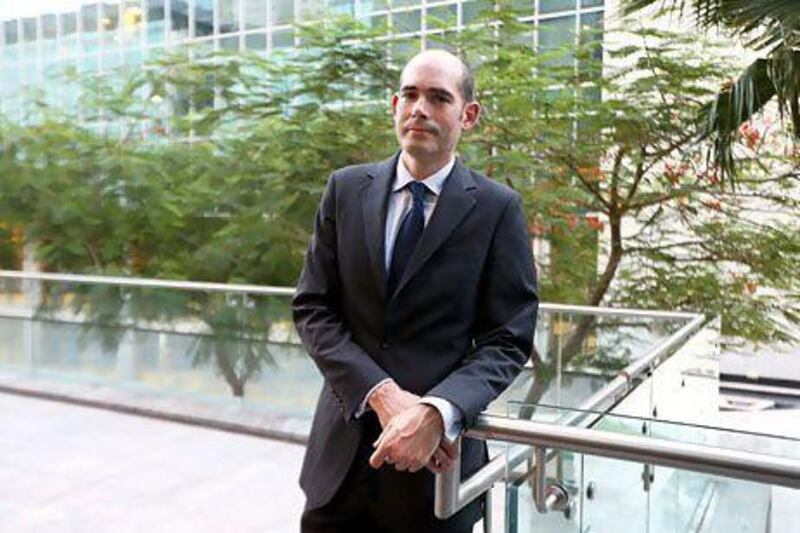James Bennett is the global managing director of eFinancialCareers.com, a job seekers' site for the banking and financial services industry handling graduates to senior executives. Here, London-based Mr Bennett reveals the results of a recent survey carried out by the company that showed stress levels among finance professionals in the Middle East are the highest in the world.
What was the survey all about?
As a recruitment platform we try to give a sense of the financial services career space. The survey says 31 per cent of the financial analysts in the Middle East are stressed, which is the highest in the world. In the Middle East, we focus on the Gulf and places such as Dubai, Abu Dhabi, Qatar and Bahrain. In the United States the figure is 19 per cent and 13 per cent in the UK.
Why is this region so stressed?
It is about job security. Almost 58 per cent of the financial analysts in the Middle East say they are unsure about their jobs in the next six months. This level of uncertainty is much higher than anywhere else in the world. This is not surprising given Emiratisation and the quotas in place. The Middle East is also the place where people put in the highest amount of overtime. In the United States, that has been the case for a long time. Traditionally, people [there] have worked the longest hours, but they also have the highest ability to do things after work.
What are the most popular job markets for financial analysts?
Asia is still popular. Getting experience abroad is part of the career for financial services professionals. There is appreciation that emerging markets are important but it is harder to get jobs in Asia now because of language requirements besides the quotas and with international banks hiring less. The language barrier is less in the Middle East, though knowledge of Arabic is an important attribute. In Hong Kong and mainland China, if you don't speak Mandarin it is tough to get a job.
With the UAE now upgraded to 'emerging market' status, it might mean more jobs for this sector. But should employers be concerned about stress?
Everyone should be worried as stress is counter-productive and leads to absenteeism, and people getting ill. But from a tax perspective, the Gulf region is still attractive. With the concentration of wealth and the time zone, the UAE is important and financial services is all part of the plan beyond oil.
What about job retention figures?
During the heady days of 2006 and 2007, the financial services sector had quite a high turnover rate of 15 to 20 per cent, which is very fast. During this time, the average length of time people retained a job was 25 months. Now the turnover volume is 7 to 8 per cent. This will change as people wanting to hang on to their jobs increase.





